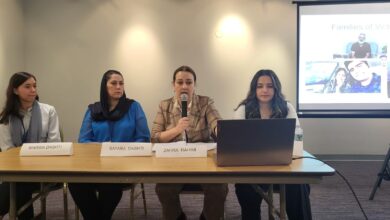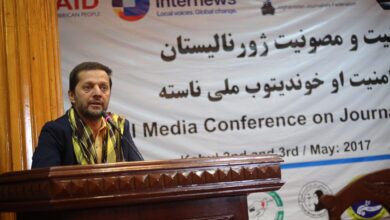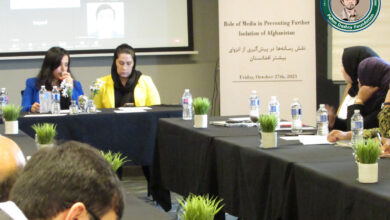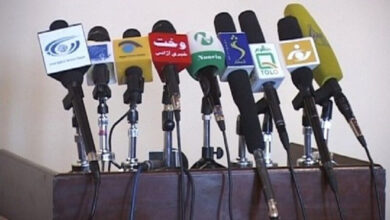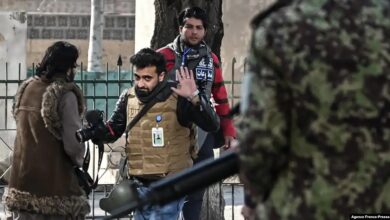
On November 4, 2024, the Dashty Foundation, in collaboration with the Parliament of Canada (House of Commons), Glocal Foundation of Canada, Free Speech Hub, and Young Senators, conducted a one-day dialogue on media censorship in Afghanistan. Ambassadors from Afghanistan, Germany, the Kingdom of the Netherlands, and Canada’s ambassador to the UN also participated in the event. Speakers discussed the current situation of free media, human rights, and women’s rights in Afghanistan. Below is the full report of this event.
Welcoming remarks
The honourable Mr. Ali Ehsassi, Member of Parliament from Willowdale, opened the dialogue by referring to the most recent report by UN Special Rapporteur on the situation of human rights in Afghanistan, Richard Bennett, who had been to Ottawa in October of this year. Mr. Bennett spent many years documenting the atrocities in Afghanistan and was recently banned by the Taliban to enter the country. Mr. Ehsassi then gave an overview of the morning’s agenda, highlighting the speakers present. He invited Ms. Sayara Dashty, Chairperson of Faheem Dashty Foundation to the floor. As a key organizer for the event, her intent was to draw attention to the plight and needs of Afghan journalists. Her husband, Faheem Dashty, had been a formidable leader in the journalistic movement in Afghanistan and was murdered by the Taliban in September 2021. Ms. Dashty created the Dashty Foundation in his honour, to support journalists and the families in conflict zones. She made her initial remarks in Farsi, and then assigned a translator to provide a statement of her position.
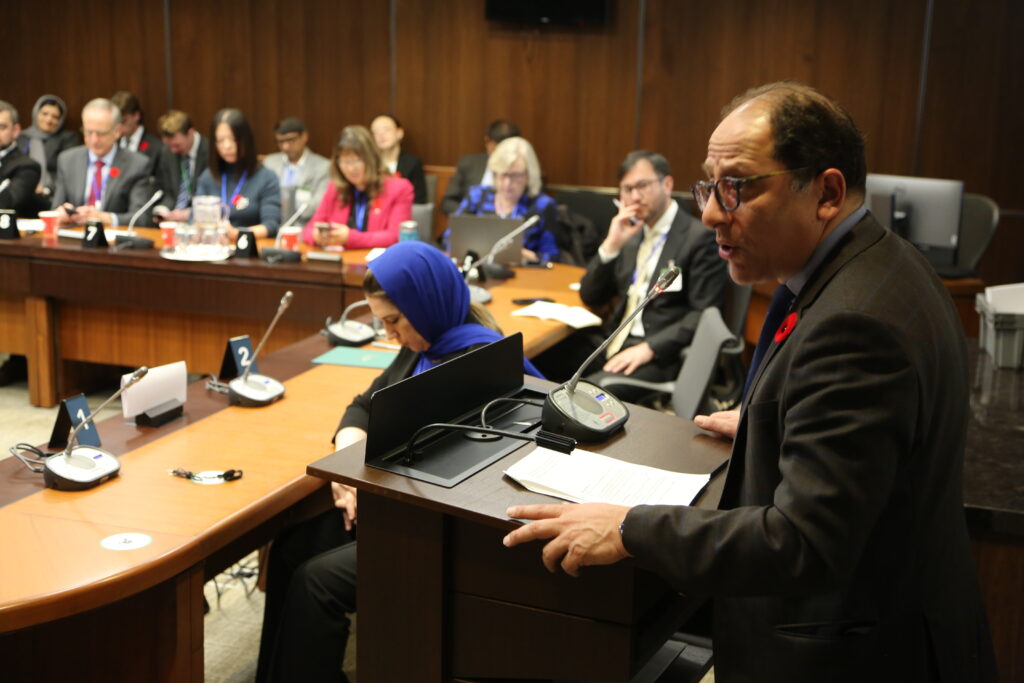
Mr. Lotfullan Najafizada was invited to set the stage for the morning’s discussions. He is the CEO of Amu TV, one of several independent media organizations to receive the prestigious Canada-UK Media Freedom Award. He expressed gratitude to Canada for accepting the people from Afghanistan who were escaping from the Taliban, and gratitude as well for the opportunity to dialogue about media censorship. He emphasized that the people of Afghanistan have not lost their belief in democracy. They regularly meet to discuss how to deal with their situation. He stated that the Taliban have declared war on women and journalists. There have been 450 cases of documented torture of journalists. Many news agencies now operate outside the country.
The final opening remarks were given by the Honourable Rob Oliphant, PC member of parliament for Don Valley West and parliamentary secretary to the Minister of Foreign Affairs. Mr. Oliphant acknowledged that countries are better off when they have a robust media. 51 countries have signed the Media Freedom Coalition which is a partnership to work together proactively to advocate for media freedom at home and abroad. MFC also advocates for the safety of journalists and media workers. Mr. Oliphant stated that there are now 54,000 new Afghan people in Canada since August 2021. Canada’s commitment to them is firm.
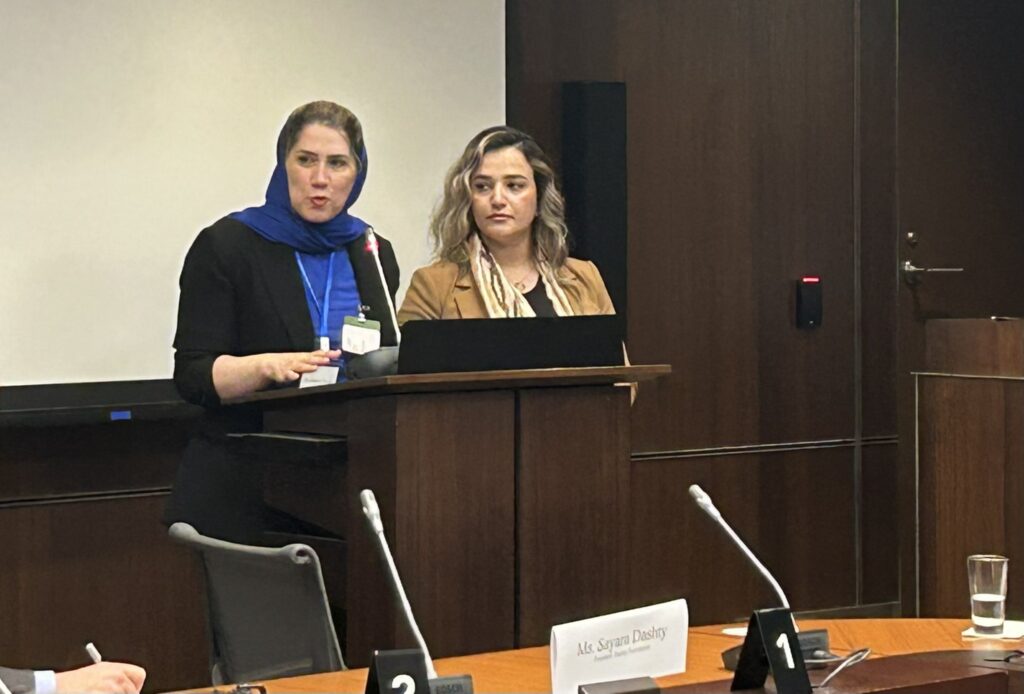
Special Remarks
Germany’s Ambassador to Canada, her Excellency Tjorven Bellmann began by describing the deep sense of failure she felt when President Biden announced the American removal of troops from Afghanistan. In her analysis, the Doha process was deeply flawed. She always knew that Taliban 2.0 would be no different than Taliban 1.0. With respect to the action begun by Canada, Germany, the Netherlands and Australia at the International Court of Justice (ICJ), she reviewed the next steps to be taken and their timeline. Other information about Germany’s foreign policy included the plan to bring in 45,000 more Afghan people into Germany, and the commitment to
ensure humanitarian funds go to women and children not the Taliban. With reference to journalists, Ambassador Bellmann stated that Germany has begun programs for Afghan journalists, including special training, internships and psychosocial support.
Her Excellency Ambassador Margriet Vonno, Ambassador of the Kingdom of the Netherlands to Canada commented on her privilege to live in a country that allows women to pursue their education and work. She spoke about her appreciation to be invited to the dialogue.
Canada’s Ambassador for Women, Peace and Security, Jacqueline O,Neill, reiterated Canada’s position that the Taliban must be held accountable for their actions and referred again to the process at the level of the ICJ.
His Excellency Ambassador Hassan Soroosh, Ambassador of Afghanistan to Canada expressed his thanks to the Honourable Ali Ehsassi and Ms. Sayara Dashty for bringing people together for the dialogue. He stressed the need for support for Afghan journalists.
Panel Discussion
Moderator: Mr. Naser Maimanagy, President of Salam Watandar, a national radio service providing leading news, information and entertainment to a network of 53 Afghan owned and operated radio stations.
Panelists:
Mr. Sanjar Sohail, Founding Director of 8AM, also known as Hasht-e-Subh Daily, Afghanistan’s premier independent non-profit newspaper
Mr. Bilal Sarwari, an independent journalist, awarded by the New York times for his investigative work
Ms. Behista Arghand, former Anchor at TOLOnews, an Afghan news channel and broadcasting website from Kabul.
Ms. Shinkai Karokhil, Former Afghanistan Ambassador to Canada
Ms. Zarqa Yaftali, Director of the Women and Children Legal Research Foundation
Mr. Sanjar Sohail began by describing how hard it was for Afghan journalists to reorganize themselves when they came to Canada. They absolutely want to build a society back in Afghanistan that is based on the rule of law. They are grateful that the Canadian government is finally listening. The journalistic work now in Afghanistan involves documenting crimes against humanity as required for the ICJ process to succeed.
Mr. Bilat Sarwari described the Taliban as being very busy with Image rather than the needs of the Afghan people. He said the Taliban are deeply involved in the drug trade, they regularly communicate with other terrorist organizations and there are high rates of murders. His analogy was that if Afghanistan is a shrimp, then Iran and Pakistan are sharks. He recommended looking at the Taliban’s digital structure and putting sanctions on their economic activity. What hurts the Taliban leaders the most is getting to their bank accounts.
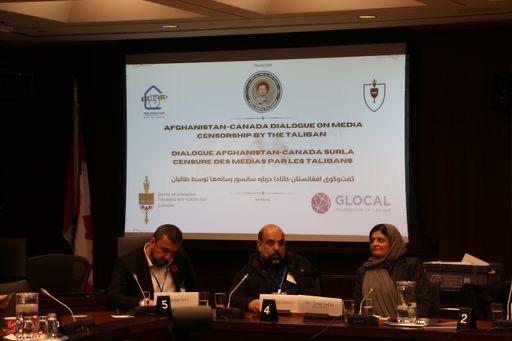
Behishta Arghand spoke clearly of the need for a platform for Afghan journalists. She mentioned that the IRCC (Immigration, Refugees and Citizenship Canada) has programs for new Canadians but not specifically for journalists.
Shinkai Karokhil gave an excellent summary of potential actions by Canada
- Play an active role in the protection of Afghan journalists in Canada
- Create an advisory group for Afghan journalists to provide training, mentorship, scholarships and assistance with adaptation to Canadian culture
- For those journalists in Afghanistan,
- Give them security training
- Secure digital technology
- Support documentation of human rights violations and abuse
- Provide tactical and moral support
- Expand the refugee settlement of high-risk journalists
She mentioned that Canada could work with the Afghan Diaspora to achieve these goals.
Following the panelists, Mr. Ali Elsassi introduced his Excellency, Mr. Bob Rae
His Excellency, Mr. Bob Rae, Canada’s Ambassador to the UN
Mr. Rae referred to Mr. Richard Bennett’s report which is recognized by the UN as definitive evidence of the actions of the Taliban. He highlighted that the conventions of the United Nations are meant to hold governments of the world accountable for their behavior. The methods of discrimination against women in Afghanistan are at a different scale from anywhere else in the world. So, the question might be asked, why are the Taliban still succeeding to lead? Mr. Rae reflected on the fact that on the walls of the UN buildings are the photos of all the Presidents of the General Assembly. Apart from 4 women, the rest are all men. He mentioned that there are a great many countries represented in the UN where patriarchal values are still very prevalent. In some ways, he said, he recognized that the UN is quote, ‘’a men’s club’’. The necessary changes in all countries to recognize the equality and rights of women take a long time. His analogy was how Afghanistan is ‘’at the sharp end of the stick’’. They have an extreme misogynist regime, and the country is deeply suffering. He stated, ‘’ we need to keep stiffening the spine of the process at the UN’’.
The final speakers were:
- Mr. Bill Kilorn, the Executive Director of Journalists for Human Rights.
Mr. Kilorn reported that the mandate of his organization had expanded to help evacuate journalists from Afghanistan. He noted that 20% of the office staff was from Afghanistan.
- Ms Faye Ying and Ms. Madina Mashkoori, from Glocal foundation. Glocal is a national not-for-profit organization dedicated to promoting civic participation through local engagement and global understanding across Canada. It was mentioned that Glocal could provide grants for young Canadians between the ages of 15 to 30 to lead and create innovative civic engagement projects.
Closing remarks
Ms Nargis Nehan is a women’s rights activist and former minister in the Afghan parliament. Her summary from the dialogue included confirmation of the sense of abandonment by Afghan women and journalists when the Taliban took power and an acknowledgement of a collective failure. She also confirmed how the Afghan media has reorganized themselves, but they need much better support. The media can play a very important role with communication between parties in and out of Afghanistan.
Finally, Mr. Said Najib Asil, the President of Free Speech Hub gave a point-by-point summary of the talks from the morning.
Mr. Ali Ehsassi thanked everyone for their participation.
